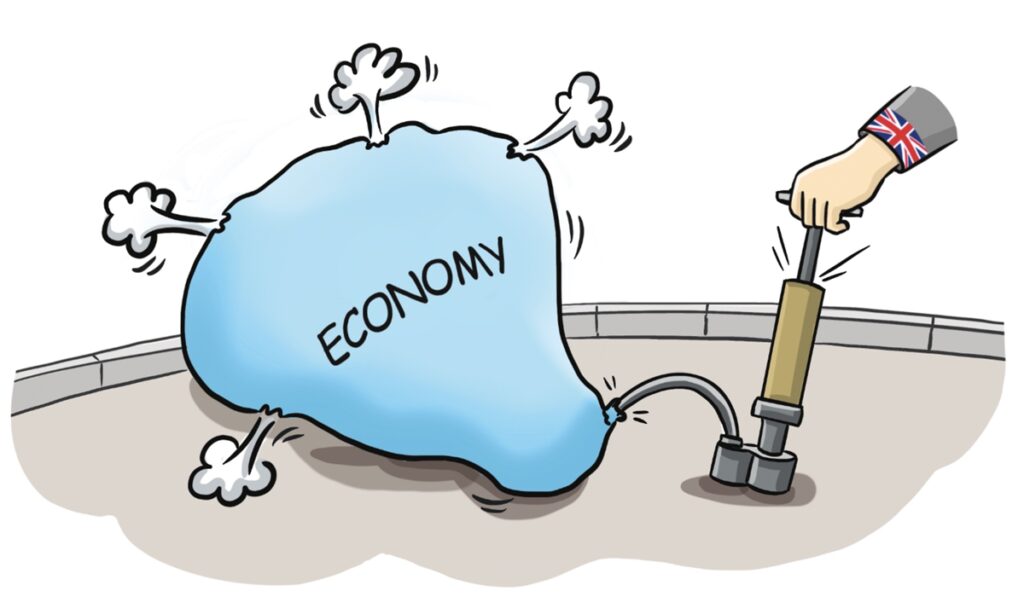As the novel coronavirus infection and lockdown restrictions continue across the UK, the British economy is now facing unprecedented pressure, with confidence of both consumers and businesses reaching historical lows. Though it is one of the earliest in the world to initiate vaccination, the country may not be able to see effective economic recovery in short term.
UK consumer confidence fell by another percentage point to negative 17 percent in the last three months of 2020, Yahoo Finance reported, citing a Deloitte report. Confidence in other sectors, including health care and children’s education were plunged to new depths.
Not only consumers are holding a pessimistic mood, businesses have also endured a dark year of 2020 with a record 35 percent of UK companies have issued profit warnings, said another report by consulting agency EY, as cited by the Bloomberg.
The UK, despite having built a relatively sound health care and social welfare system, has been dealing with the outbreak poorly. Heading toward a herd immunity path in the first place, the country has seen its medical system overwhelmed, pressured by the newly emerged virus variant which is more transmissible and lethal. And different from other economies, the UK enjoys major advantages in service industries, making it particularly hard to reboot economic activities with many jobless workers staying home.
The other critical challenge facing the UK economy is a bumpy Brexit. Though the two sides concluded a last-minute trade deal by the end of 2020 before the UK officially left the EU bloc, it was only a deal focusing on goods trading. Related arrangements on the crucial service industries, such as the financial service and law sectors, which accounted for over 80 percent of the British economy, remain in limbo.
The uncertainties brought about by the Brexit will remain and keep impacting the country’s societal and economic fabric.
Eagerly attempting to make up the losses of leaving EU and find new economic engine, the UK has been seeking more free trade agreements with other major economies or trying to join more free trade zones. It has formally applied to join the Comprehensive Progressive Trans-Pacific Partnership (CPTPP). Though it could boost confidence of the market to some extent, it takes marathon talks to finally to reach a deal.
Also, it is not straightforward for UK to find appropriate partners to effectively boost economic growth, from the US which is busy tackling domestic problems, to the British Commonwealth of nations which mainly share cultural connections more so than industrial complementarities, from India which may still takes time to foster an effective and reliable business environment, to China which has seen bilateral ties been recklessly sabotaged by the UK.
Though it is one of the earliest nations in the world to initiate mass vaccinations, it’s hard for the UK to swiftly reverse a downhill economic trajectory. Effective recovery may not be evident until next year.
On the other hand, as a country that values pragmatism, the UK has constantly adjusted its approaches in line with the international environment. Despite the setbacks which have impacted China-UK ties, the two sides maintain cooperative potential, including in financial services. Upholding an unobstructed economic and trade connection with China, the major power driving global economic growth before and after the pandemic, will undoubtedly facilitate the reboot of the struggling British economy.
The article was compiled based on an interview with Wang Yiwei, Jean Monnet Chair Professor and Director of European Studies at Remin University of China. bizopinion@globaltimes.com.cn
Illustration: Xia Qing/GT



